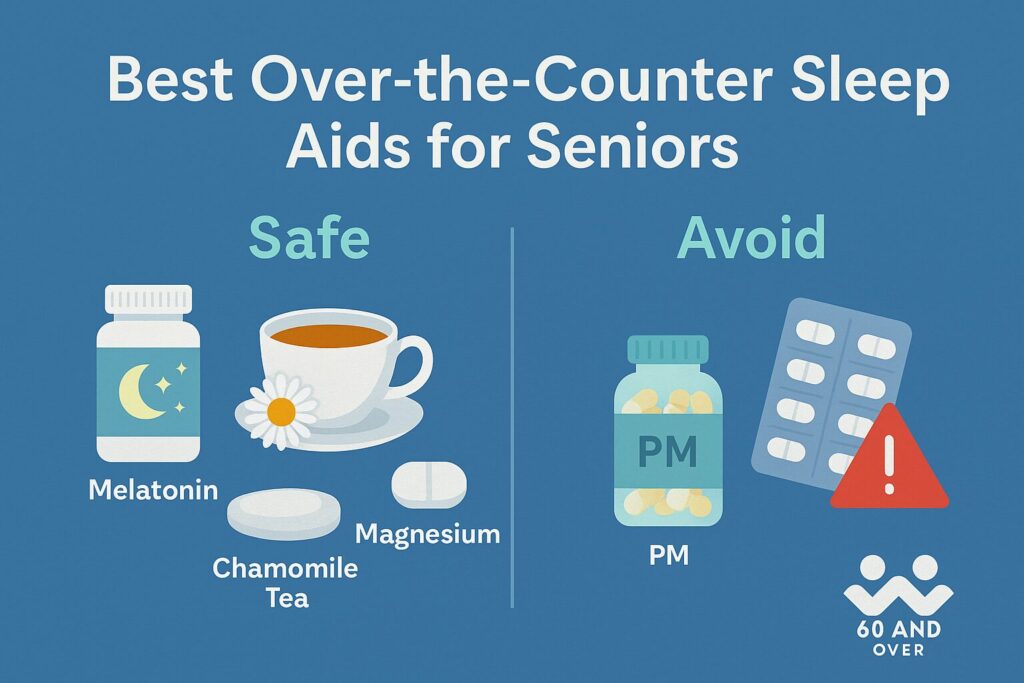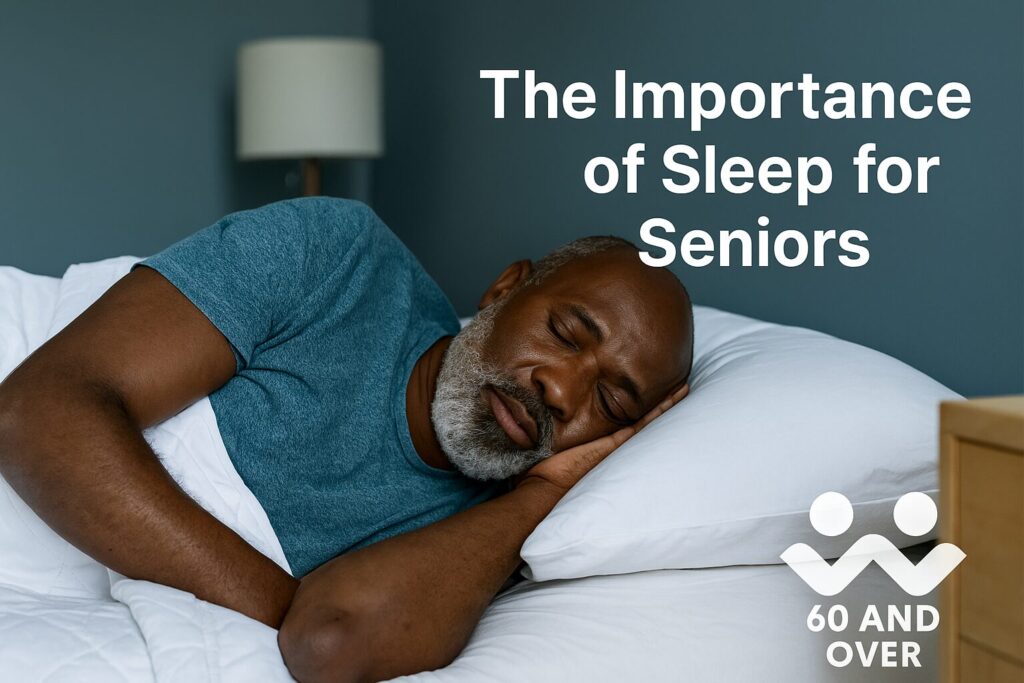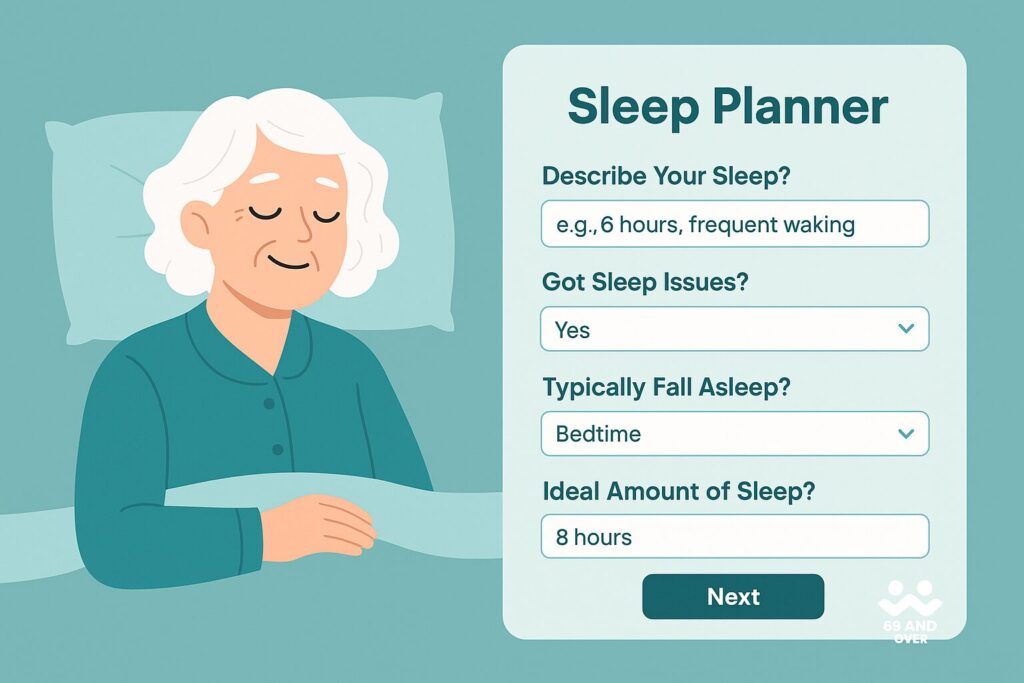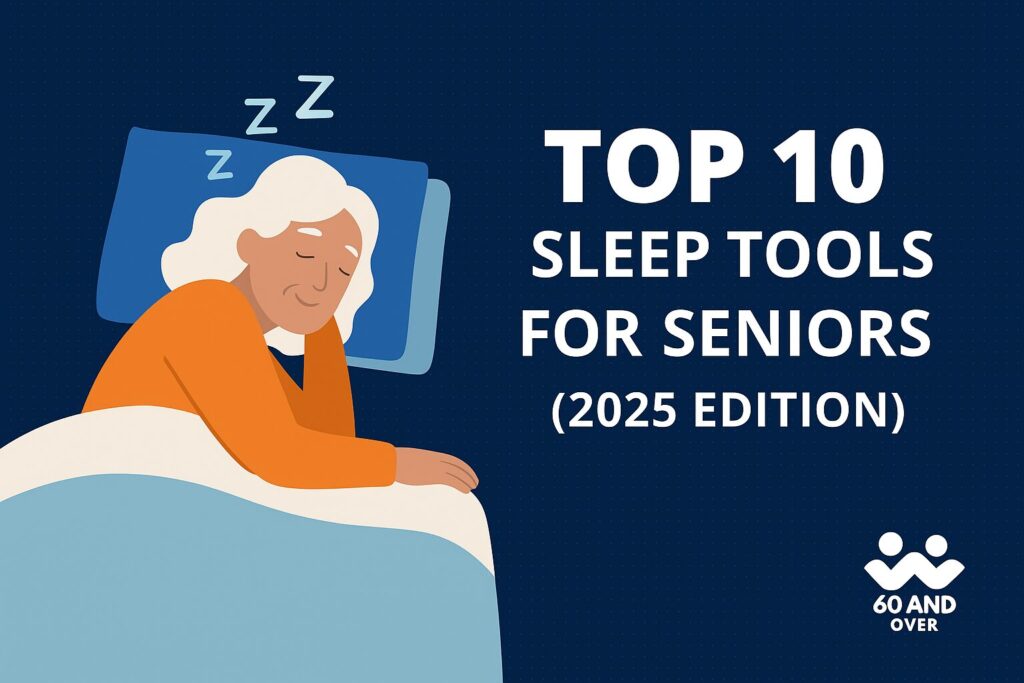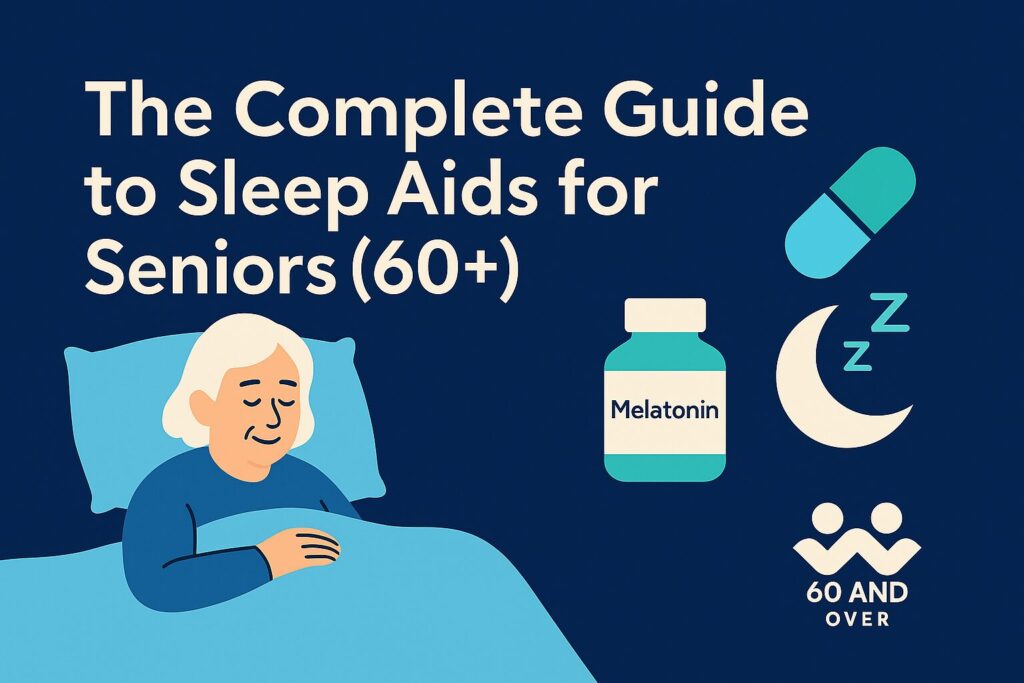Safe Choices, Dosage Tips, and Risks Explained for Seniors
Sleep changes with age. Many seniors find themselves lying awake at night, waking up too early, or struggling with restless sleep that leaves them drained the next day. Prescription sleep medications are available, but they often come with significant side effects for older adults. That’s why many seniors look to over-the-counter (OTC) sleep aids — natural supplements, gentle remedies, and familiar options available without a doctor’s prescription.
But which ones actually work? And which should older adults avoid? This guide looks at the most common OTC sleep aids, how they work, what the research says, and what seniors should know before using them.
What Counts as an Over-the-Counter Sleep Aid?
OTC sleep aids include a wide variety of products that can be purchased without a prescription:
- Supplements such as melatonin, magnesium, and valerian root
- Herbal remedies like chamomile tea or passionflower
- Antihistamine-based sleep aids such as diphenhydramine (Benadryl, Tylenol PM)
- Other calming nutrients such as L-theanine
For seniors, the safest OTC options tend to be natural supplements and herbal remedies, while certain medications marketed as “PM” products should generally be avoided.
Melatonin
How it works: Melatonin is a hormone that signals the body it’s time for sleep. Supplements are widely used by seniors because natural melatonin production decreases with age.
Benefits for seniors:
- Helps with sleep onset (falling asleep faster)
- Useful for circadian rhythm problems like waking too early
- May help with jet lag or shift in sleep timing
Dosage: Most seniors do best with 0.3–2 mg taken 30–60 minutes before bedtime. Higher doses may cause grogginess or dizziness.
Risks: Possible side effects include morning sleepiness, headache, or dizziness. Seniors with diabetes, high blood pressure, or who take blood thinners should check with their doctor.
Takeaway: Melatonin is one of the safest and most effective OTC sleep aids for older adults when used at low doses.
Magnesium
How it works: Magnesium supports nerve signaling, muscle relaxation, and melatonin production. It’s sometimes called the “relaxation mineral.”
Benefits for seniors:
- May improve overall sleep quality
- Reduces nighttime awakenings
- Helpful if muscle cramps contribute to sleep disruption
Dosage: 100–350 mg of supplemental magnesium in the evening is common, in addition to food sources. Magnesium glycinate or citrate are better absorbed and gentler on the stomach.
Risks: Too much magnesium can cause diarrhea, nausea, or low blood pressure. Seniors with kidney problems should avoid supplements unless supervised by a doctor.
Takeaway: A safe, non-habit-forming option for many seniors, especially those with low magnesium intake.
Valerian Root
How it works: An herbal supplement thought to boost GABA, a calming neurotransmitter.
Benefits for seniors:
- May help with sleep onset
- Can reduce mild anxiety that interferes with rest
Dosage: Most studies use 300–600 mg capsules taken 1–2 hours before bed.
Risks: Possible side effects include headache, dizziness, or stomach upset. Should be avoided by those with liver problems or who are already taking sedatives.
Takeaway: Results are mixed, but valerian can be worth trying short-term under a doctor’s guidance.
Chamomile and Herbal Teas
How it works: Chamomile contains apigenin, a compound that binds to receptors in the brain that may promote sleepiness.
Benefits for seniors:
- Gentle and natural
- May reduce nighttime anxiety
- Can be part of a relaxing bedtime routine
Dosage: One cup of chamomile tea in the evening is typically safe.
Risks: May interact with blood thinners such as warfarin, and can cause allergic reactions in people sensitive to ragweed.
Takeaway: Safe for most seniors, but not powerful. Works best as part of a nightly relaxation ritual.
Diphenhydramine (Benadryl, Tylenol PM)
How it works: Diphenhydramine is an antihistamine that causes drowsiness. It’s commonly included in “PM” pain relievers and sleep aids.
Why it’s risky for seniors:
- Causes morning grogginess and confusion
- Increases fall risk due to dizziness and slower reaction times
- Has strong anticholinergic effects linked to memory decline and even dementia risk when used long-term
Dosage: 25–50 mg at bedtime, but not recommended for older adults.
Takeaway: Despite being widely available, diphenhydramine is not recommended for seniors and should generally be avoided.
L-Theanine and Other Gentle Options
How it works: L-theanine, an amino acid from green tea, promotes relaxation without sedation.
Benefits for seniors:
- Reduces stress and racing thoughts at night
- Can improve sleep quality when combined with other calming habits
Dosage: 100–400 mg at night, though milder than other supplements.
Risks: Generally well tolerated with few side effects.
Takeaway: A gentle option, best for those who struggle with anxiety-driven sleeplessness.
What Seniors Should Look for in OTC Sleep Aids
Because seniors are more vulnerable to side effects, it’s important to choose OTC sleep aids carefully. Key tips:
- Start low and go slow. Begin with the smallest effective dose.
- Avoid combination products. Formulas with multiple sedatives may increase risk.
- Check medication interactions. Always review supplements with your doctor if you take other prescriptions.
- Use sleep aids short-term. They work best as a bridge while addressing underlying sleep habits.
- Prioritize non-drug approaches. Sleep hygiene and CBT-I remain the most effective long-term strategies.
Safer First-Line Options
Among OTC sleep aids, the following are considered safest for seniors:
- Melatonin (low-dose)
- Magnesium (moderate dose, unless kidney disease is present)
- Chamomile tea or other mild herbs
- L-theanine for stress-related sleeplessness
Valerian root may help some, but is less reliable. Diphenhydramine and other “PM” products should be avoided.
Conclusion
For seniors, over-the-counter sleep aids can provide gentle support — but they are not a cure-all. The best results often come from combining safe supplements like melatonin, magnesium, or chamomile with good sleep hygiene, light therapy, and professional guidance.
Used wisely, OTC sleep aids can help older adults fall asleep faster, stay asleep longer, and wake up feeling more refreshed — without the risks of stronger prescription drugs.
Best Over-the-Counter Sleep Aids for Seniors: Frequently Asked Questions
Q: What are the safest over-the-counter sleep aids for seniors?
A: The safest options include low-dose melatonin, magnesium, chamomile tea, and L-theanine. These are generally well tolerated and non-habit-forming when used correctly.
Q: Should seniors avoid diphenhydramine (Benadryl, Tylenol PM)?
A: Yes. Diphenhydramine is not recommended for seniors because it increases the risk of falls, confusion, memory problems, and next-day drowsiness.
Q: How much melatonin should older adults take?
A: Most seniors do best with 0.3–2 mg taken 30–60 minutes before bedtime. Higher doses are not usually more effective and may cause side effects.
Q: Can herbal remedies like valerian root or chamomile really help seniors sleep?
A: Chamomile tea is mild but safe for most seniors and can be part of a calming routine. Valerian root may help some people fall asleep faster, but results are mixed and it may cause side effects in sensitive individuals.
Q: What should seniors consider before choosing an OTC sleep aid?
A: Always check for interactions with prescription medications, start with the lowest effective dose, and avoid multi-ingredient “PM” products. Talk to your doctor if sleep problems last longer than two weeks.

